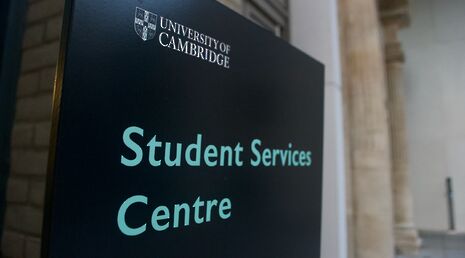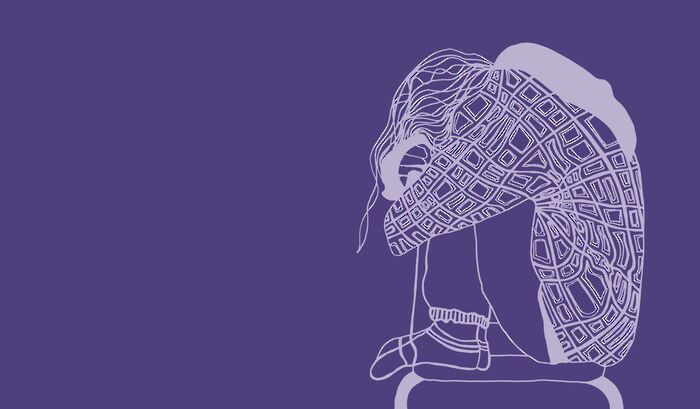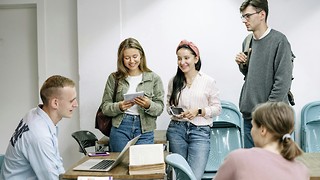Welfare support and counselling must better accommodate the realities of disabled students
The fact that disabled people face particular barriers is not just an issue for disabled people, but for all of us, writes Disabled Students’ Campaign Class Act Representative Rensa Gaunt

With its move to the Student Services Centre, the University Counselling Service (UCS) is now fully wheelchair accessible – a move long overdue and a crucial step forward. Having the UCS sign-up be via a self-referral form on its website is also a good and accessible choice, as is email self-referral for college-based counselling. But among Cambridge students, just as throughout the UK, many people with disabilities still face barriers to welfare services, such as accessing counselling, that aren’t so easily fixed.
Firstly let me clarify: ‘disabled’ doesn’t just mean that a person uses a wheelchair — disability extends far beyond those conditions that are ‘visible’ or ‘obvious’, and invisible conditions should be taken just as seriously.
Living in an ableist world means that often, people with existing health problems can be reluctant to seek additional treatment for fear of being a ‘burden’ or asking for ‘too much’. This is especially the case with conditions such as anxiety or OCD, where some individuals may be overcome with guilt and shame for needing help.
And to make things worse, University procedures often expect you to have an already-diagnosed condition with a ‘quick fix’ available that will return you to full health instantly. This is just not possible for the majority of conditions, and can cause a profound sense of guilt about being ill in the first place, never mind also having mental health problems at the same time.
The kind of self-advocacy necessary to pursue mental health treatment can be exhausting
Finding support also requires a huge amount of mental and physical energy, which for some people with depression and fatigue may be or feel insurmountable. The very reason that they need treatment is in itself a barrier to that treatment, and individuals might need more encouragement from staff and peers alike to be able to access crucial welfare services. The fact that support is theoretically available does not mean that everyone has the energy and capacity to fight for it: the kind of self-advocacy necessary to pursue mental health treatment can be exhausting, on top of the energy taken up by having a health condition in the first place.
For students who are able to access counselling support, certain health conditions might also affect their ability to engage with counselling in a specific format. Sensory impairments or processing disorders can affect communication, or cause an individual to seem too distracted, indifferent or closed off to be taking their counselling seriously, when actually this behaviour is normal for them.
For those with pain conditions, something as simple as a more comfortable chair can help them to stay focused and make the most of the sessions available. These reasonable adjustments must be discussed openly and considerately, or they risk being swept under the carpet and a person’s needs being dismissed when they are at their most vulnerable. We need to have sincere discussions around the accessibility of welfare and support for everyone — not just confident and assertive abled people. Everything that we are as people comes into play in how we experience mental illness, and the fact that disabled people face particular barriers is not just an issue for disabled people, but for all of us: there is no such thing as a single-issue person. A multitude of factors play into how someone experiences mental illness or disability, from sexuality to cultural background.
There has been more recognition recently of the particular needs of people of colour in accessing and receiving therapy. In Cambridge, for example, ex-CUSU/GU Welfare & Rights Officer Micha Frazer-Carroll successfully advocated for a BME Counselling Scheme at the UCS, an important first step towards truly accessible counselling.
Staff and students responsible for welfare and wellbeing must be dedicated to understanding the individual in their context, and not just as a single presenting complaint. And recurring misconceptions around disability hamper our view of a disabled person as a full and nuanced being.
Unlearning ableism is
a life-long process
Harmful ideas such as ‘being disabled is intrinsically depressing’ or ‘they are only struggling because of their disability’ mask the truth: that disabled people can have mental health issues just like everyone else, and that doesn’t mean that their mental health issues are inevitable just because they are disabled. It shouldn’t need saying, but even disabled people should be able to enjoy their day to day existence without being made to feel like a burden, or like their mental illness is a reflection of the negative ‘truth’.
If you wouldn’t accept an abled person’s disproportionate anxiety about the future, then there is no reason that a disabled person should be made to feel like their anxiety is just how it is — we deserve appropriate treatment, unconditionally and without excuses.
For instance, it is often unclear to what extent staff are trained in anti-discrimination, including on the basis of disability. While training is clearly essential, being trained and qualified doesn’t make you perfect, nor does it allow you to instantly unlearn all of the biases and assumptions the wider world is teaching you. It is astounding the number of times I have heard students justify someone else’s behaviour with “but they’re a professional”.
Unlearning ableism is a life-long process, and we need to hold ourselves and others accountable before damage occurs, not just afterwards. Of course, many members of staff have a fantastic approach to their students’ needs and they should be celebrated for this, but this doesn’t mean that all of them will get it right 100% of the time, or that students should be discouraged from seeking out a second opinion.
Despite the frustration and ableism that University systems often reproduce, I cannot emphasise enough how important it is to keep going until you get the help you need. It should not have to be left to you to push things through, but you need to keep pushing all the same. Keep asking for the help that you and your peers need until you get it.
And we, as well as all those who provide support, must hold ourselves and each other accountable for providing services and perspectives that are truly accessible to all.
I am grateful to those who anonymously contributed to this piece and trusted me to do their experiences justice, and I hope that other students feel able to seek the help that they need. If you think you or a friend has not been treated fairly or fully because of a disability, you can seek support from the Disabled Students’ Campaign or from the Students’ Unions’ Advice Service at any time. If you feel able to, you can ask for help from your GP, college nurse or student rep, or find advice in the Disabled Students’ Campaign private peer support group. If you have questions, get in touch with us at the Disabled Students Campaign.
 News / Cambridge academics sign open letter criticising research funding changes22 February 2026
News / Cambridge academics sign open letter criticising research funding changes22 February 2026 News / Student and union protesters hold ‘Trans Liberation Solidarity Rally’ 24 February 2026
News / Student and union protesters hold ‘Trans Liberation Solidarity Rally’ 24 February 2026 News / Union speakers condemn ‘hateful’ Katie Hopkins speech14 February 2026
News / Union speakers condemn ‘hateful’ Katie Hopkins speech14 February 2026 Features / Beyond the porters’ lodge: is life better outside college?24 February 2026
Features / Beyond the porters’ lodge: is life better outside college?24 February 2026 Theatre / Footlights Spring Revue? Don’t Mind if I Do!25 February 2026
Theatre / Footlights Spring Revue? Don’t Mind if I Do!25 February 2026









